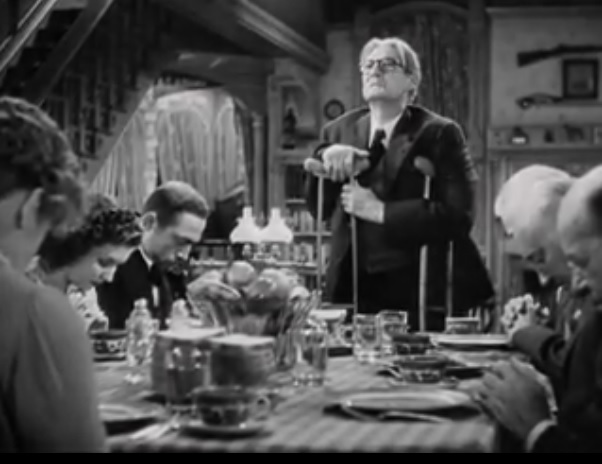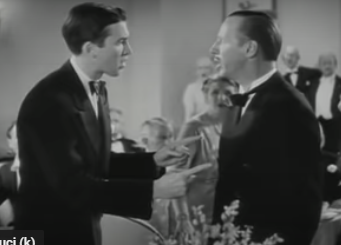You Can't Take It with You is a 1938 film directed by Frank Capra. The film's plot is a comedy that follows the lives of an eccentric and non-conformist family, the Vanderhofs, and their impact on a wealthy businessman and his daughter.
Plot
The story revolves around the Vanderhof family, an eccentric and unconventional family living in a large house in New York. The head of the family, Grandpa Vanderhof (played by Lionel Barrymore), has given up a successful career to pursue his own interests and enjoy life.
Grandpa's daughter, Penny (played by Spring Byington), is an aspiring playwright, while his grandson, Martin Vanderhof (played by Jean Arthur), is an inventor who is unafraid of failure. The family consists of individuals who follow their dreams and passions, without worrying too much about money or material success.
The plot takes a turn when the daughter of a wealthy businessman, Alice Sycamore (played by Jean Arthur), falls in love with Martin's grandson. Alice worries that her eccentric and non-conventional family might scare her father and her future husband, Tony Kirby (played by James Stewart), who comes from a wealthy and conservative family.
The story unfolds with conflicts between the two families, with Alice's father opposing the marriage and wanting his son to marry a "suitable" woman. However, the love and genuineness of the Vanderhof family begin to positively influence the Kirby family and question life priorities.
"You Can't Take It with You" is a comedy that celebrates individuality, happiness, and the value of personal passions over social conformity. The film won the Academy Award for Best Picture in 1939.
Director: Frank Capra
Writer: Robert Riskin
Producer: Frank Capra
Music: Dimitri Tiomkin
Main Cast:
- Jean Arthur as Alice Sycamore
- Lionel Barrymore as Grandpa Martin Vanderhof
- James Stewart as Tony Kirby
- Edward Arnold as Anthony P. Kirby
- Mischa Auer as Kolenkhov
- Ann Miller as Essie Carmichael
- Spring Byington as Penny Sycamore
Major Awards: The film won the Oscar for Best Picture and Best Director (Frank Capra).
Box Office Gross: The film achieved good success at the box office.
Critical Reception: The plot highlights the values of happiness and love versus wealth and ambition. The film was a major success, winning the Oscar for Best Picture and Best Director for Frank Capra. It was praised for its blend of humor and positive message, as well as the performances of its actors. The film has become a classic of cinema and continues to be appreciated for its positive spirit.

Reviewing The Eternal Illusion today, I ask myself some questions.
Was it really worth the Oscar it won for best picture ?
Some juxtapositions that turn out to be a stretch and bordering on believability: very good people and very bad people , were they not a stretch even for those times ?
Sure, many scenes are hilarious, but I find the film's screenplay fragile overall, even though, at the time, the novel won the Pulitzer Prize. It is held up by Frank Capra's outstanding direction and James Stewart's performance.
The mass scenes are very well directed, as are the actors' entrances and exits from the Sycamore-Vanderhof family home.
The music by Dimitri Tiomkin is excellent. Still a very enjoyable film.
![]() You Can't Take It With You
You Can't Take It With You 



